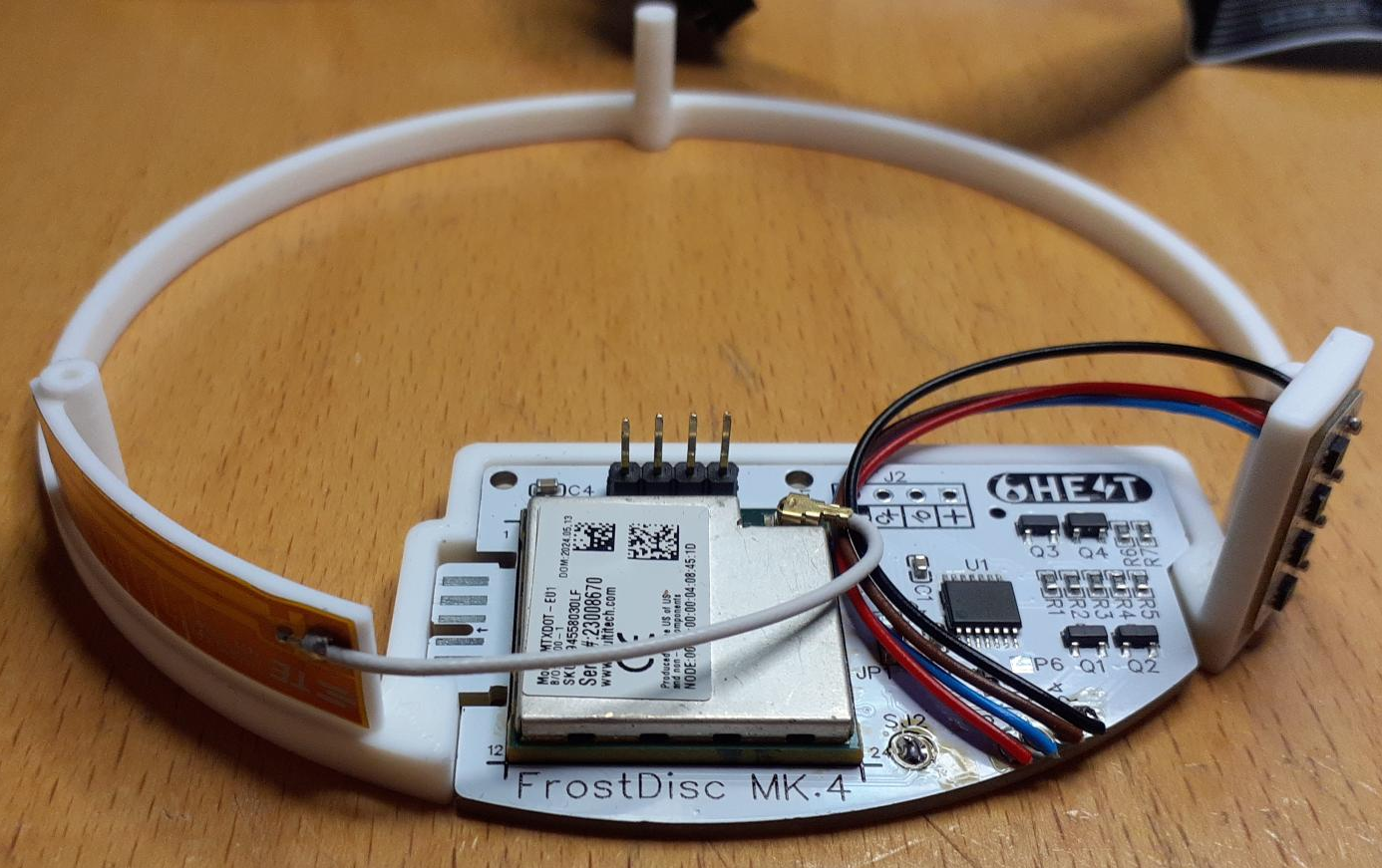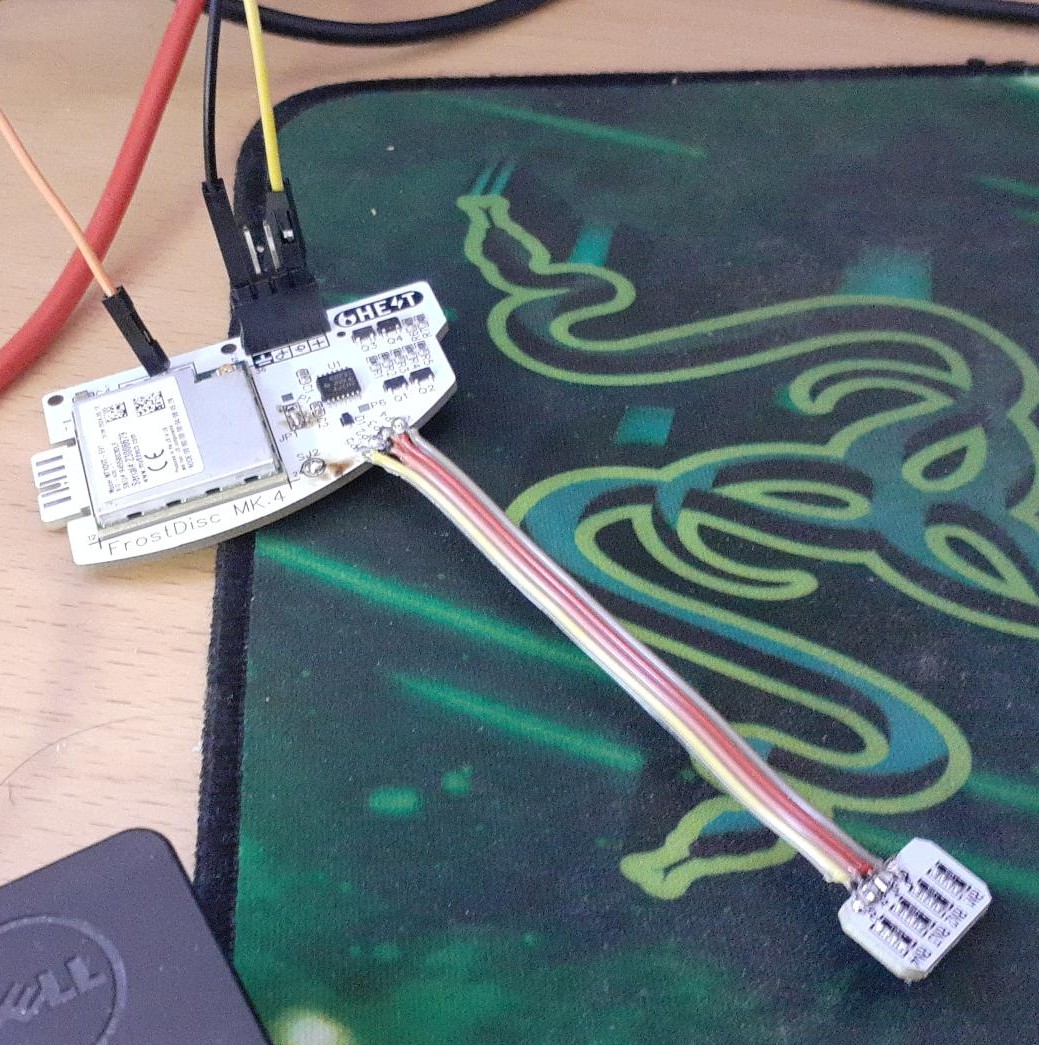FrostDisc Mk4 installed onto the inner frame
FrostDisc is nearing completion. The radio board and sensor boards have now been installed onto the inner frame. Also the flexible antenna has been installed. We are really close now! Only missing the power board, which should arrive from PCB assembly in the following weeks.










